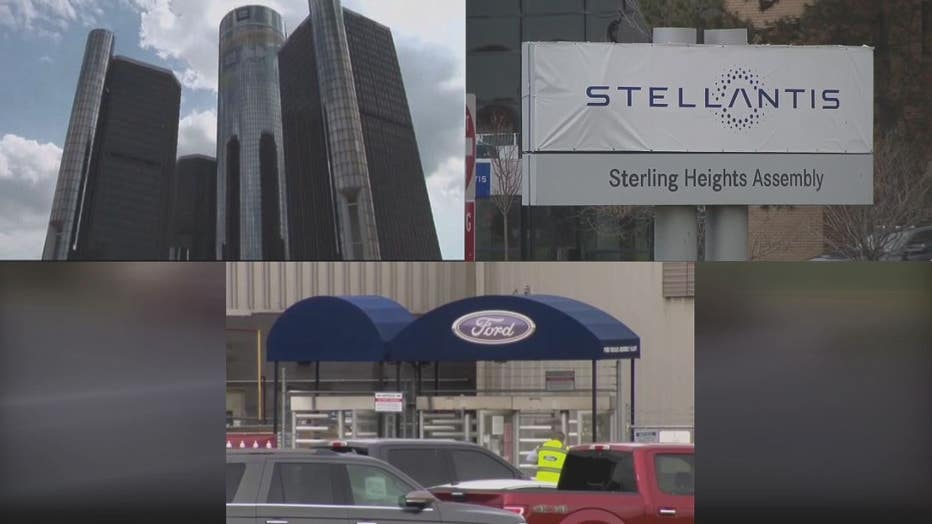Stellantis claims progress made in UAW negotiations - union says pay discussion still far apart

Stellantis says negotiations progress made with UAW, union says pay discussion still far apart
It posted an executive statement on the website - Stellantis Negotiations 2023 - stating subcommittees for the union and automaker have reached tentative agreements in several areas like health and safety.
FOX 2 (WJBK) - Just over three days to go, and Stellantis says they’ve made progress with the UAW over the weekend.
It posted an executive statement on the website - Stellantis Negotiations 2023 - stating subcommittees for the union and automaker have reached tentative agreements in several areas like health and safety.
But UAW leadership says they are still far apart on the money.
"Things are moving but they’re moving very slow," said Shawn Fain, the UAW president, in regards to Stellantis negotiations.
The union wants a 46 percent wage increase with pay tiers scrapped.
Stellantis previously went up to 14.5 percent in a proposed deal.
Ford offered up a 15 percent combined increase.
GM proposed a 10 percent increase with inflation bonuses mixed in.
The union rejected counteroffers from all three Detroit automakers in recent days.
"I think publicly, there may be things happening behind the scenes in the negotiation room that we’re not - that’s not being shared with the public," said Alan Amici.
More UAW-Big 3 negotiations coverage:
- UAW, Big 3 have only days left to reach deal before employees strike
- 'We are on a good path': Stellantis plans to give UAW second proposal after weekend of negotiating
- What does the UAW want from Detroit's Big Three in the 2023 negotiations?
Amici is president and CEO of the Center for Automotive Research. He says while talks go down to the wire, much of the debate is about how the Big Three will move further into the world of Electric Vehicles.
The EV transition is an expensive one, which pulls a lot of cash out of automaker profits.
"The engineering teams are shifting from engine and transmission development into batteries, battery monitor systems, battery cell technology," he said. "And so it’s a big shift for these companies."
Amici walked us through some of the pricy basics.
"When you move to an EV, you’re going from a very complex 8- and 10-speed transmission to a single, one- or two-speed transmission. So, much simpler component, much lighter - fewer moving parts…more reliable and so your engineering effort is decreased significantly."
There’s changes related to emissions as well.
"When you move from an EV, you no longer have any of that type of compliance so all of your overhead for emissions and regulatory affairs related to emissions go away," Amici said. "And so you don’t need that team to develop that technology anymore."
The union says there’s still plenty of money to bring worker pay up to par with the salaries of big car bosses.
"The price of vehicles in the Big Three and overall have went up 30 percent in the last four years," Fain said. "Our wages went up 6 percent."


